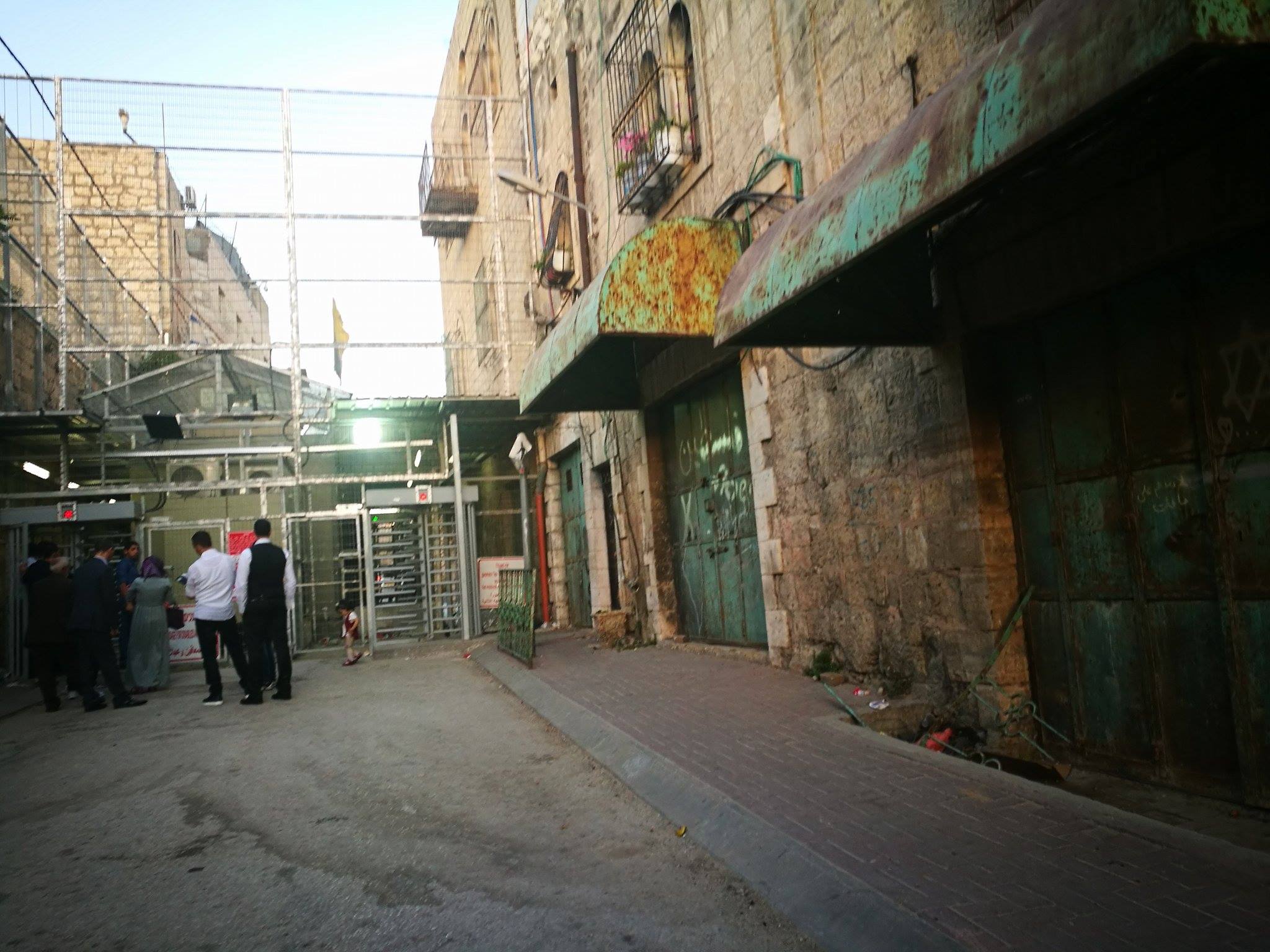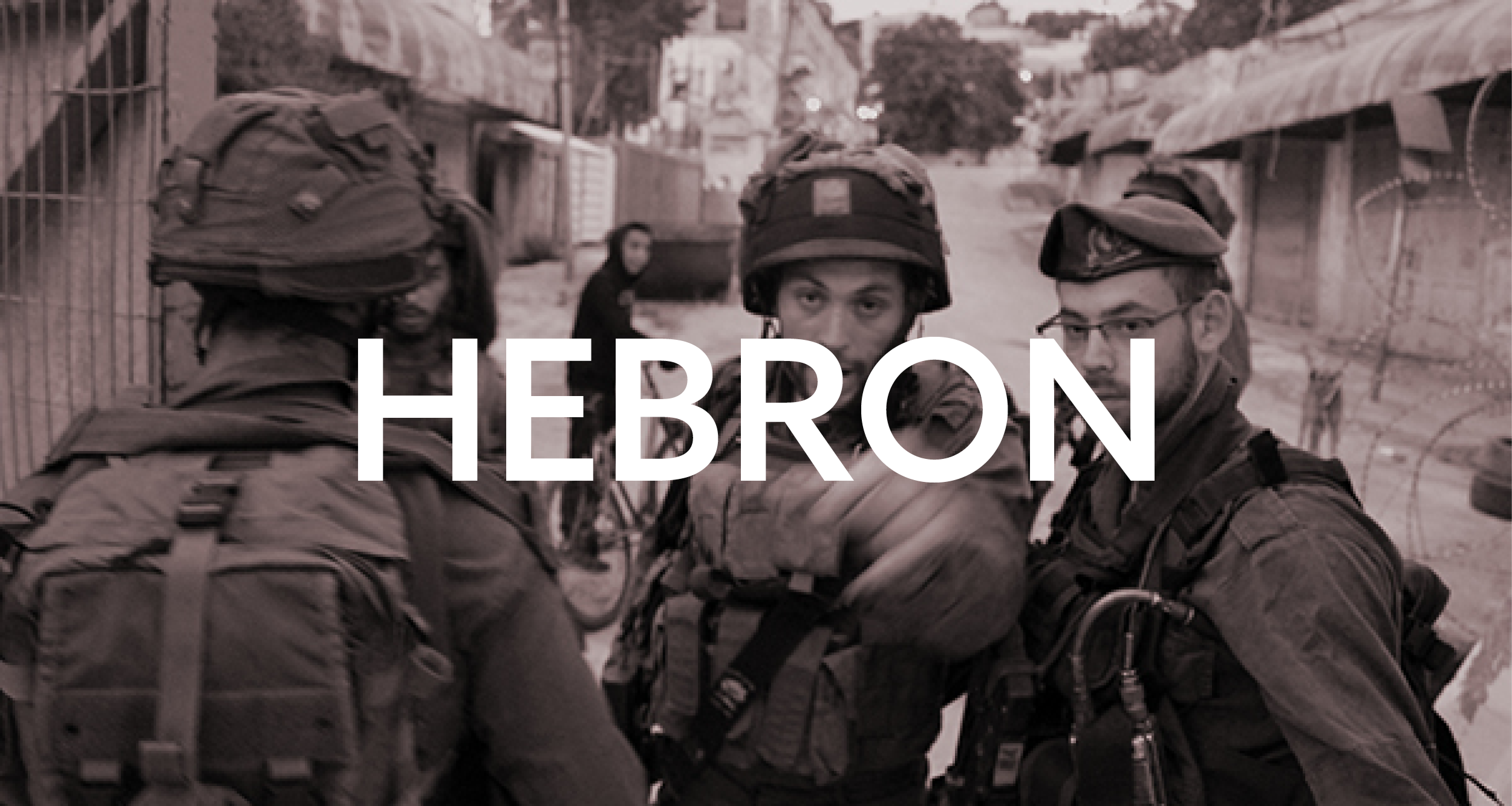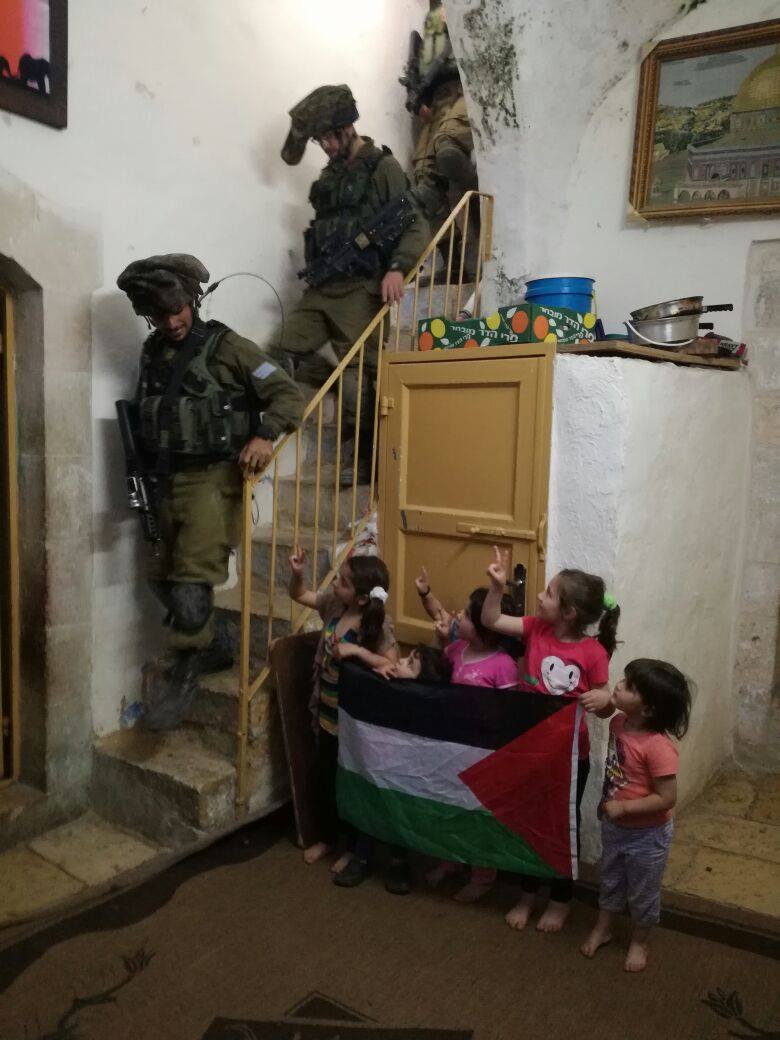Tag: Shuhada Street
-
Palestinians celebrating Eid in a ‘closed military zone’
26th June 2017 | International Solidarity Movement, al-Khalil team | Hebron, occupied Palestine As anywhere all over the world, Palestinian Muslims are celebrating the end of the fasting-month Ramadan with the 3-day feast of Eid. Eid usually is a joyous occasion, everyone dresses up nicely and the most important activity is visiting family. For Palestinians…
-
Palestinian Activist Detained In Hebron
A 22 year old Palestinian activist was detained in al-Khalil this morning. He was held and interrogated for thirty minutes, before being escorted through the Shuhada Street checkpoint. He was released after another half hour with no charge, but was told that Israeli forces would raid his house if they found he was linked to the…
-
Israeli soldiers occupy home of Palestinian family during Pesach, al-Khalil
15th April 2017 | International Solidarity Movement, al-Khalil team | al-Khalil (Hebron), occupied Palestine A Palestinian family living in the Old City of al-Khalil were subject to nightly home intrusions by Israeli forces throughout the week leading up to Pesach, or Passover. On Wednesday 12th April, ISM activists visited the home on Shalallah Street…



